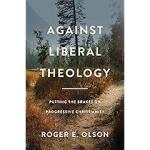Charities, under UK law, are a special kind of creature, and they are regulated by the Charity Commission of England and Wales (or its equivalent in Scotland or Northern Ireland). In addition to being run as a nonprofit, a charity must meet stricter standards of "public benefit" in order to qualify. A charity must be registered under a "Head of Charity," which defines its particular purpose and goals, and a charity that provides services outside its specified "Head" may be de-registered as a result. Heads of Charity include such things as the advancement of religion, education, citizenship or community development, human rights and environmental protection, to name a few.
Under English Charity Law, the advancement of religion is itself considered to be "for public benefit," and so a religious organization that applies for charitable status with the Charity Commission must first prove that it is in fact a "religion" as defined for the purposes of charity law—i.e., that it is a "cogent, coherent, serious and important" system of belief and practice that includes an acknowledgement of a "supernatural or spiritual" principle or deity. Although English Charity Law requires a more specific definition of religion in order to determine public benefit, this definition of religion is not what determines which practices and beliefs are protected under the Human Rights Act. All religious belief and practice is protected from discrimination, and in fact, the British government provides no formal, legal definition for what may qualify as a "religion." Reconciling the definition of "religion" for purposes of charity law with the broader protections against discrimination as outlined in the Human Rights Act is the on-going task of the Charity Commission's board members as they consider the complex nature of protected rights and legal precedent on a case-by-case basis.
Although the Church of England remains the UK's only "official" state religion, since 2006 the requirement to demonstrate "public benefit" has been waived for all religious organizations, and so simply demonstrating that an organization promotes "the advancement of religion" is sufficient to earn it charitable status. At the time of The Druid Network's application for charitable status, however, this new Act was still in the process of passing through Parliament and being incorporated into the Charity Commission's official procedures. As a result, TDN had to demonstrate not only its legitimacy as a religious organization, but also its claim to benefit the general public, in a process that took four years of debate, discussion, and refinement of its constitution and by-laws.
The upshot of this timing, however, was that TDN played a definitive role in helping the Charity Commission to decide how it would interpret these new laws in the future, including the expansion of the idea of "deity" to include immanent or non-supernatural principles or beings (which has opened the door to pantheism, animism, and non-theistic spiritualities as well as monistic, monotheistic, and polytheistic religious traditions). The definitions held by the Charity Commission, and the legal precedent that it sets with its decisions to register certain religious charities, technically only influence English Charity Law and cannot necessarily be extended to other aspects of the law in the United Kingdom, let alone beyond its borders to the United States. Yet because of the prominent role that the CC plays in regulating and promoting public welfare organizations, its decisions do carry weight in British society akin to "unofficially official" recognition. Several major media outlets in Britain—including the BBC, the Telegrap,h and the Times—reported the news of TDN's success by claiming that Druidry had been "officially recognized" as a religion. While this isn't precisely true, the impact of the CC's decision does have some important ramifications.
Churches and Religious Nonprofits in the U.S.
Because of its history of revolution and independence not only from the crown but also from the church of England, the United States has carved out a special place for religion and religious freedom within its laws. The First Amendment of the U.S. Constitution states that, "Congress shall make no law respecting an establishment of religion . . ." and this provision effectively limits the extent to which the federal government has the power to regulate religious institutions. The oft-cited "wall of separation between church and State," attributed to Thomas Jefferson and used repeatedly over the past two hundred years to set legal precedents for religious liberty, means that in America it is often far easier for a group to function as a church than as any other kind of nonprofit organization. But let's back up for a moment.
Unlike in the United Kingdom where the Charity Commission plays a significant role in determining charity status across the entire country, the United States has no overarching regulatory body to oversee nonprofit and tax-exemption laws on a national scale. Instead, this task is divided between state governments on a local level, and the Internal Revenue Service (IRS) at the federal level. The result, as one might expect, is a heady mishmash of complicated laws and dense legal jargon meant to cover all possible eventualities, and which can vary from state to state. Thus, the terms "nonprofit" and "tax-exempt" are not synonymous. While the IRS determines tax-exemption based on federal law, state laws regulate an organization's nonprofit status according to its founding documents and organizing principles. In other words, in the United States, all tax-exempt organizations must be nonprofits (as determined at the state level), but not all nonprofits are automatically tax-exempt (according to federal law).




